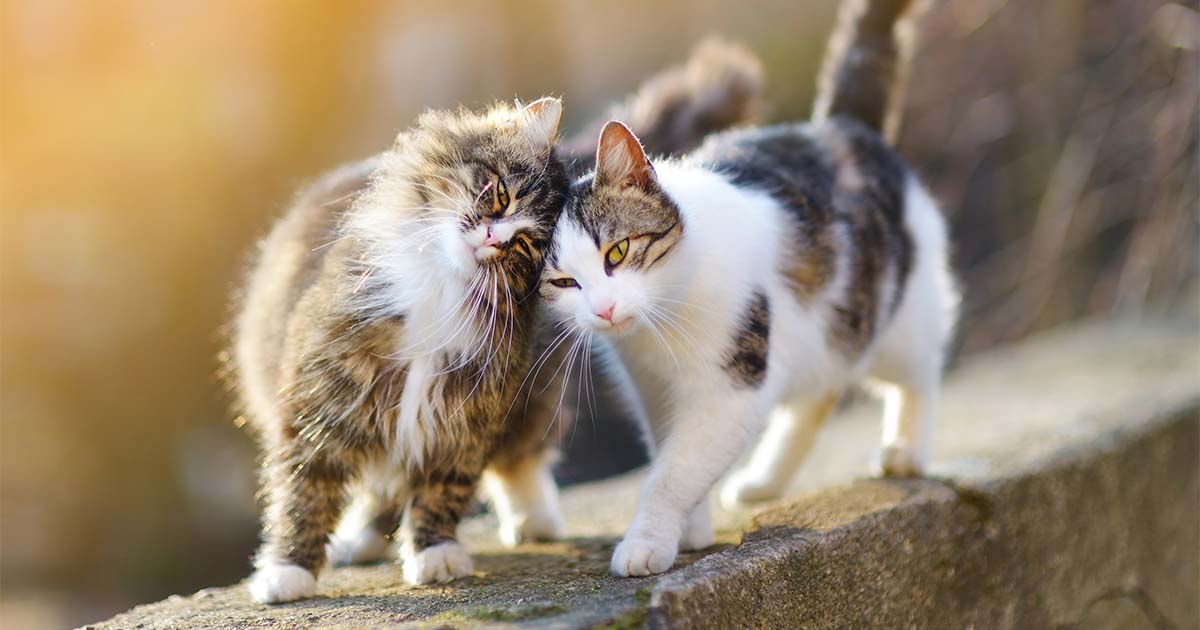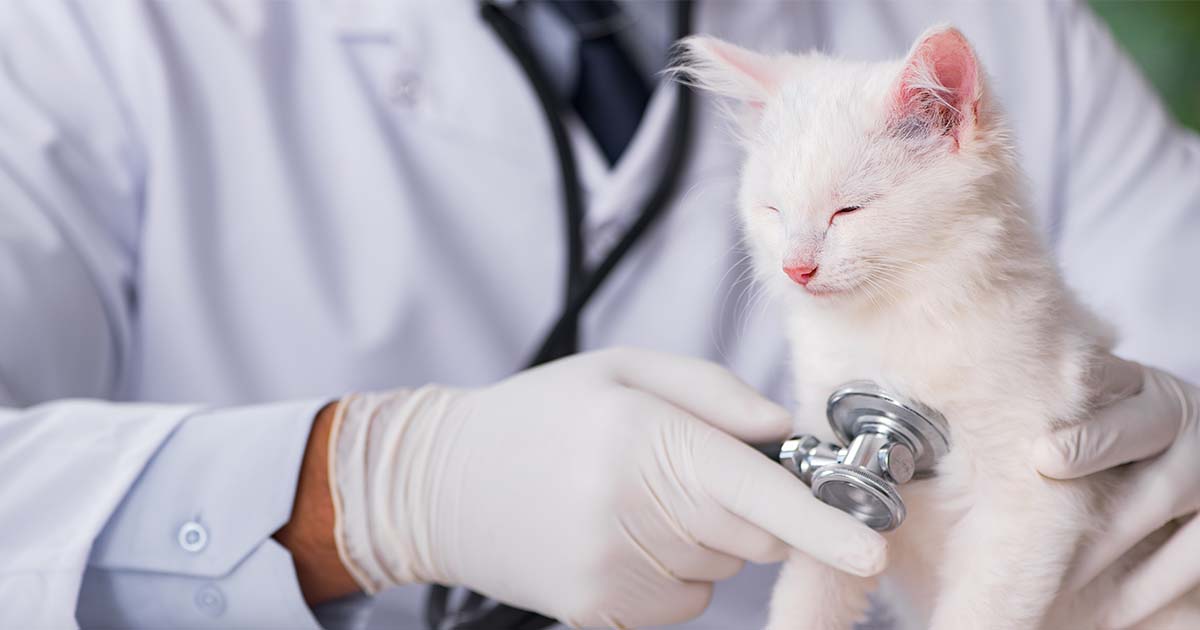
Are you a proud cat parent? Taking your cat to the vet regularly will help them stay healthy. But how often should a cat go to the vet?
In this blog:
Do Cats Need to Go to the Vet?
Yes, absolutely. Cats, like other family pets, need regular vet visits to ensure they live a long, healthy, happy life.
Regular vet visits allow your vet to monitor your cat’s health, watch for any early signs of disease, and ensure your cat is up to date on vaccinations.
Catching health issues early often results in better health outcomes and less expensive healthcare costs for you. Taking proactive steps toward your cat’s health may prevent expensive treatments down the road.
What is a Cat Check-Up?
A cat check-up is similar to a routine wellness exam or a physical for a human. Regular check-ups are just as vital for your whiskered buddy as for you! They are also the purrfect time for you to ask your vet any questions or concerns you may have about your cat, such as changes in their behavior or dietary preferences.
A cat check-up typically includes:
- Physical Examination: Your vet will give your cat a thorough medical exam and check for any signs of abnormalities.
- Vaccinations: If your cat is due for shots, your vet will provide their immunity boosters or needed vaccinations at this visit.
- Dental Inspection: Dental health is crucial for cats. Your vet will check your cat’s gum and teeth health. Bad breath can be a sign of gum disease or other illness that needs attention.
- Parasite Prevention: Your vet will check to make sure your furball isn’t carrying any harmful hitchhikers.
- Nutrition Advice: Your vet might suggest dietary changes to keep your cat fit as a fiddle.
To discover the secrets to a healthy, happy feline life – check out our comprehensive guide on every stage of your cat’s life!

When to Take a Kitten to the Vet
Kittens are like tiny, adorable sponges soaking up experiences and infections alike. To give your fur baby the best start in life, here’s when to schedule your vet appointments:
Birth – 1st Year
- First Visits: Kittens should be taken to the vet every 3-4 weeks for the first 16 weeks of their life. Typically, kittens will receive their first vaccinations at around six weeks old. These first visits will track your kitten’s development. They are also a great time to get your kitten used to your vet and traveling in the car. While these first visits might feel a little stressful, they will get easier and easier for your kitten (and for you)!
- Follow-up Visits: Typically, veterinarians recommend spaying or neutering a kitten around 6-12 months. Spaying or neutering your kitten can prevent medical or behavioral problems from developing. These procedures also help control the cat population and prevent shelters from overflowing.

When to Take a Cat to the Vet
Vet visits don’t stop once your kitten becomes a full-fledged cat, of course. Adult cats need vet visits, too:
- Annual Check-Ups: Once a year, like clockwork, to ensure your cat is staying healthy. A yearly check-up also helps keep your cat up to date on vaccinations.
- Senior Cat Care: After age 8, consider semi-annual visits, as cats are prone to age-related issues. Don’t be misled by a seemingly happy-natured senior cat. Cats are such independent fur babies that they can be secretive about any discomforts or issues they are experiencing! So, take your senior cat to the vet twice a year for reassurance that all is well or that any issue that appears will be addressed in a timely manner.

Signs You Should Take a Cat to the Vet
Sometimes, our feline friends are experts at hiding their ailments. If you spot any of these red flags, it’s time for an immediate vet visit:
- Changes in Appetite: Eating too much or too little is a sign that something is not working as it should.
- Litter Box Issues: Frequent urination, straining, or avoiding the litter box indicate there may be a problem that needs attention.
- Weight Changes: Unexplained weight gain or loss can be a sign of underlying issues.
- Behavior Changes: If your cat suddenly becomes lethargic, aggressive, or overly anxious, it’s time to investigate.
- Visible Symptoms: Vomiting, diarrhea, sneezing, coughing, changes to the skin or fur, or lumps and bumps are, of course, issues that need to be addressed by your veterinarian.
Transporting your cat to the clinic
Here are some tips on transporting your cat to the vet:
- Never travel with your cat loose in the car – always use a carrier.
- Choose the right carrier for your cat – make sure the carrier is large enough and is sturdy.
- A carrier that opens at the top can be much easier to gently lift your cat out of.
- Putting a blanket or item that smells like home in the carrier will help reduce your cat’s stress while traveling.
- Secure the carrier on the seat with a seatbelt or in the footwell of your cat to avoid the carrier sliding around while you are driving.
- Drive slowly and gently.
Remember, being a responsible cat parent means staying vigilant and proactive about your furry friend’s health. So, whether you’re a seasoned cat whisperer or new in the world of whiskers, make those vet appointments a priority. Your feline companion will thank you with a purr of gratitude and a lifetime of companionship!

